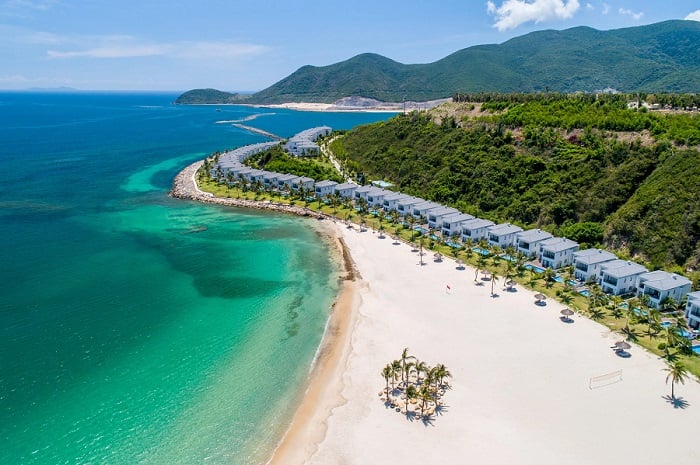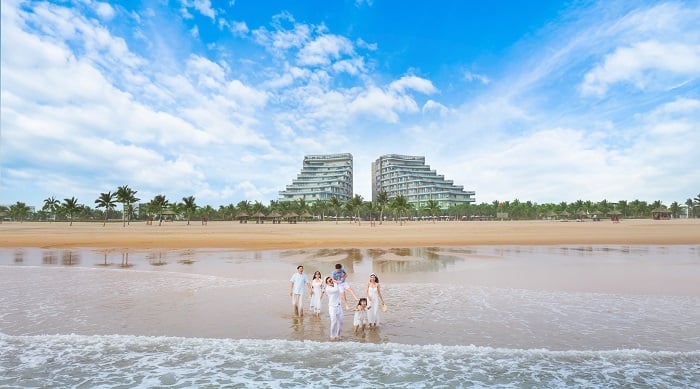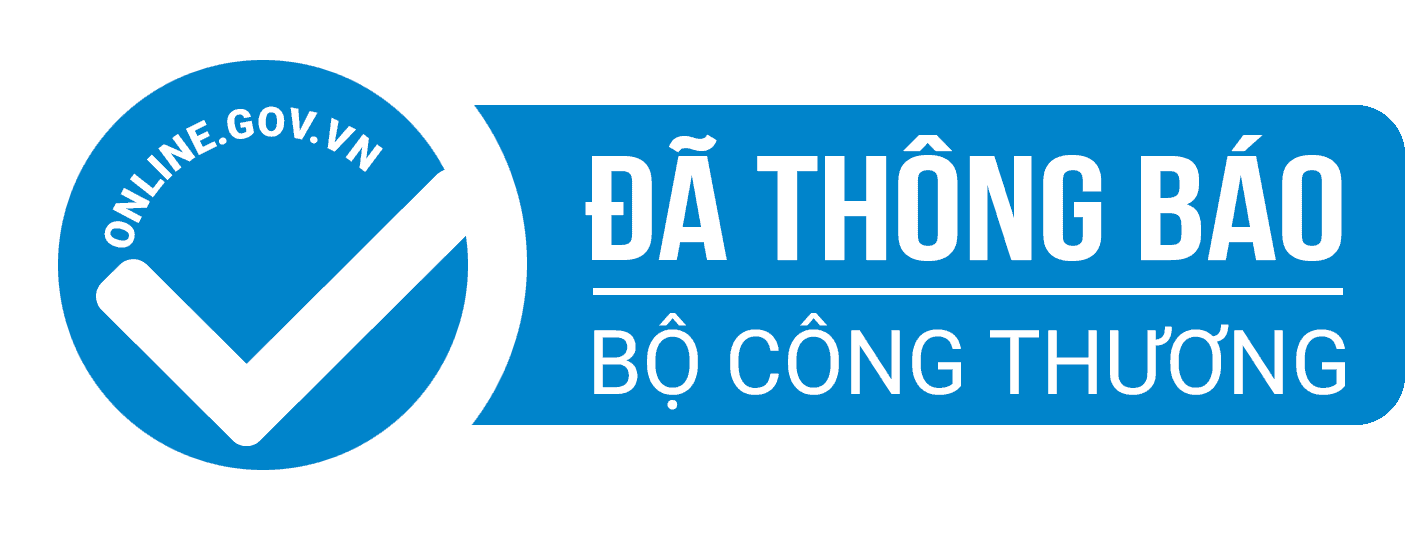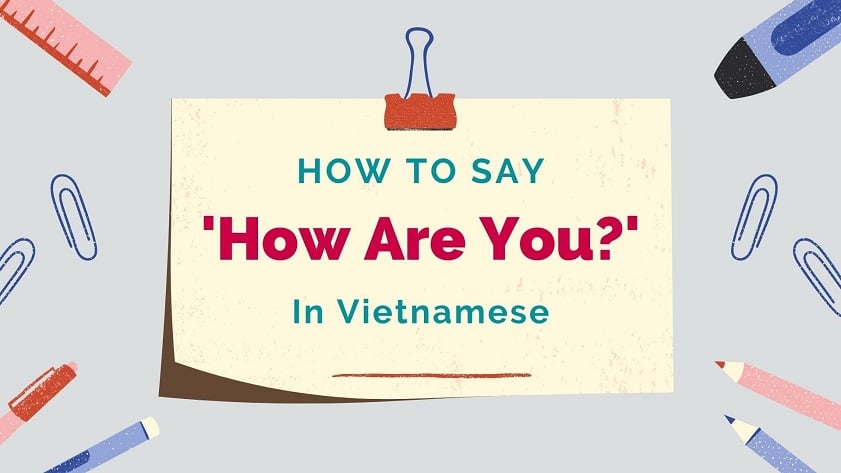
Learning to say "How are you” in Vietnamese serves as a cultural key when exploring Vietnam. Connecting with the locals begins with understanding this phrase, a gateway to meaningful exchanges that unveil the richness of Vietnamese culture.
1. When to say “How are you” in Vietnamese and how important it is?
Greetings in Vietnamese culture hold significant importance, serving as more than just polite exchanges. They play a crucial role in establishing and maintaining relationships. The traditional greeting involves a bow or a nod paired with verbal expressions of goodwill. The choice of words, specifically the customary use of titles and honorifics, reflects not only respect but also the hierarchical nature of Vietnamese society.
Moreover, greetings extend beyond mere formality; they are an entry point into deeper conversations. "How are you" in Vietnamese is used strategically, often indicating a genuine interest in the well-being of the other person. Engaging in proper greetings is a way to show politeness, sincerity, and an understanding of cultural norms. It contributes to the overall harmony within social interactions and fosters a sense of community.
Regarding the phrase “How are you” in Vietnamese, unlike in English, where it is a polite salutation used for both acquaintances and strangers, people do not employ this phrase with strangers in Vietnam. Instead, it is reserved for an acquaintance that has not been interacted with recently.

>>> Read more: Traditional Vietnamese culture: A complete guide for culture travelers
2. A quick guide related to saying “How are you” in Vietnamese
2.1. What is “How are you” in Vietnamese?
How to say “How are you” in Vietnamese language properly? The most common way to say it follows the structure:
- [The word for You] + (có) khỏe không?
The word "có" is typically optional, both in spoken and written language. The word "khỏe" translates to fine, and "không" is added to convert the statement into a question. An alternative to "không" is the less common "chứ," typically used with a repetition of [the word for You] at the end.
Another common way to inquire about well-being in Vietnamese is through the structure:
- [A time phrase] + [The word for You] + thế nào?
The term "thế nào" is the Vietnamese equivalent of the English word "how." It is essential to note that in Vietnamese, it is unusual to ask someone “thế nào?" without a time phrase in front, as such a question would be too generic.
The translation of "you" involves choosing an appropriate term based on age and gender, reflecting the hierarchical structure of Vietnamese society. There are several ways to address a person in Vietnamese. To be specific:
- "Em" is used to address someone younger than you but older than a child
- "Chị" is used to address a female person older than you
- "Anh" is used to address a male person older than you
- "Cô" is used to address a female person way older than you
- "Chú" is used to address a male person way older than you
- "Bác" is used to address someone way way older than you
- "Bà" is used to address an elderly woman
- "Ông" is used to address an elderly man
For example: when you meet a Vietnamese woman, there are several ways to say “How are you” in Vietnamese to her, depending on how you address that person in Vietnamese.
- If she is younger than you: Em khỏe không? or Hôm nay em thế nào?
- If she is older than you: Chị khỏe không? or Hôm nay chị thế nào?
- If she is way way older than you: Bà khỏe không? or Hôm nay bà thế nào?

2.2. How to respond to “How are you” in Vietnamese?
There are several ways to answer the question “How are you” in Vietnamese, such as:
- Tôi/Mình khỏe - I’m fine
- Tôi/Mình vẫn bình thường - I’m fine as usual
- Không tốt lắm - Not so good
- Vẫn tốt - Still good
- Vẫn vậy - Still the same
2.3. How to ask back after being asked “How are you” in Vietnamese?
To ask back after being asked “Hello, how are you” in Vietnamese, you can use a very simple structure:
- “Còn” + [the word for You]
This is equivalent to “And you?” in English. “Thank you” is often redundant in Vietnamese.
For example, when you meet an old friend who is older than you:
You: Xin chào. Dạo này chị thế nào? (Hello, how are you?)
Her: Chị khỏe. Còn em? (I’m fine. And you?)
>>> Read more: Vietnamese phrases: A practical guide for travelers to connect with locals
3. Other ways to say “How are you” in Vietnamese
In addition to the above-mentioned phrases, there are many other ways to say “How are you” in Vietnamese translation. The following are some common ways to ask “How are you doing” in Vietnamese and their equivalent English meanings:
Vietnamese sentence | English equivalent | Note |
Bạn ăn cơm chưa? | Have you eaten yet? | |
Bạn đi đâu đấy? | Where are you going? | |
Dạo này công việc thế nào? | How is your work lately? | |
Gia đình của bạn (dạo này) thế nào? | How is your family (lately)? | You can replace “gia đình” with words for family members (ông, bà, bố, mẹ, anh, chị, etc.) |
Bạn đang làm gì đấy? | What are you doing? | |
Bạn đợi lâu chưa? | Have you waited for long? |
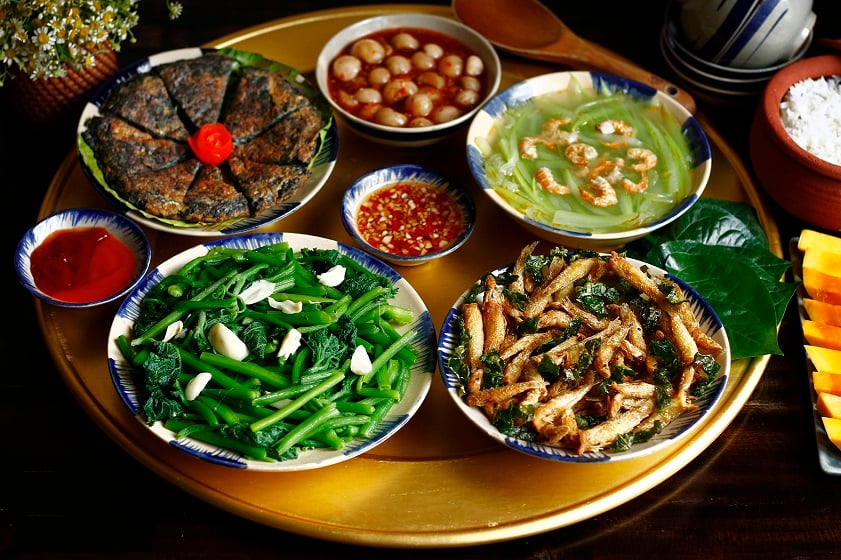
>>> Read more: Vietnamese people: Facts to know to have the best cultural experiences
4. Examples of conversations saying “How are you” in Vietnamese
4.1. Direct ways to ask “How are you” in Vietnamese
Here are some examples of basic conversations asking “How are you” in Vietnamese:
- Example 1: When you meet a female junior at your office
You: Chào em. Dạo này em khỏe không? (Hello. How are you lately?)
Her: Chào chị. Em khỏe. Còn chị? (Hello. I’m fine. And you?)
You: Chị vẫn vậy. (I’m still the same)
- Example 2: When you meet an elderly man who is as old as your grandfather
You: Cháu chào ông. Dạo này ông thế nào ạ? (Hello. How are you lately?)
Him: Chào cháu. Ông vẫn bình thường. Cháu thì sao? (Hello. I’m fine as usual. And you?)
You: Cháu vẫn khỏe ạ. (I’m fine)
- Example 3: When you meet a friend that you have not seen for a while
You: Lâu rồi không gặp. Dạo này bạn thế nào? (Long time no see. How are you lately?)
Her/Him: Mình vẫn khỏe. Cảm ơn bạn đã hỏi thăm. Còn bạn thì sao? (I’m fine. Thank you for asking. And you?)
You: Mình cũng vậy. (Me too)
4.2. Indirect ways to ask “How are you” in Vietnamese
Here are some sample conversations to indirectly ask “How are you” in Vietnamese:
- Example 1: When you ask your friend whether has she/him eaten and want to invite her/him to join the meal (“How are you” in Vietnamese informal conversations)
You: Bạn ăn cơm chưa? (Have you eaten yet?)
Her/Him: Chưa. Còn bạn? (Not yet. How about you?)
You: Mình cũng vậy. Đi ăn cùng mình luôn không? (Me too. Would you like to go eat together?)
He: Ừ. Chúng ta đi thôi. (OK. Let’s go)
- Example 2: When you ask an older man about his work
You: Anh có khỏe không? Dạo này công việc anh thế nào? (How are you? How is your work lately?
Him: Cảm ơn em đã quan tâm. Công việc anh vẫn ổn, có một số dự án mới khá thú vị. (Thank you for asking. My work is still fine. There are some interesting new projects.)
- Example 3: When you want to ask about your friend’s family
You: Lâu rồi không gặp bạn. Bạn và gia đình bạn dạo này thế nào? (Long time no see. How are you and your family lately?)
Her: Xin chào. Dạo này mình hơi bận. Gia đình mình vẫn khỏe. Hôm nào bạn rảnh, mình mời bạn qua nhà chơi nhé! (Hello. I've been quite busy lately. My family is fine. Whenever you are free, come over to my house!)
You: Ừ. Chắc chắn mình sẽ ghé. (Ok. I will definitely drop by.)
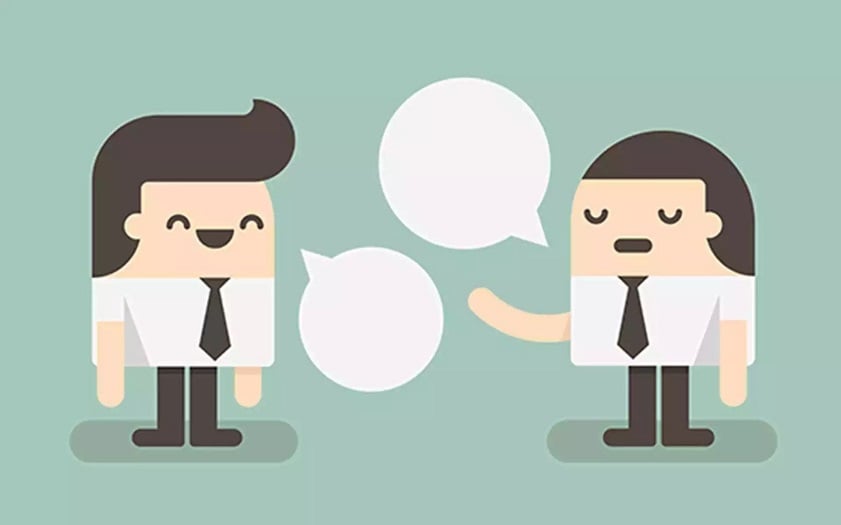
>>> Read more: Vietnamese names: Naming traditions and 200+ common names for boys & girls
The phrase "How are you" in Vietnamese extends beyond a greeting; it embodies warmth and hospitality. Understanding its cultural significance enhances connections with the locals, fostering deeper insights into their emotions and enriching the travel experience by creating meaningful interactions throughout the vibrant landscapes of Vietnam.
If you are enthusiastic about delving into Vietnamese language, acquainting yourself with basic Vietnamese conversations like “How are you” in Vietnamese is an essential step for an unforgettable Vietnam travel. Yet, amidst this pursuit, don't overlook the irresistible allure of Vietnam's natural landscapes, its people, history, and culture. Iconic destinations like Hanoi, Ho Chi Minh City, Phu Quoc, Nha Trang, Hoi An, and Ha Long will introduce you to the heart and soul of the local traditions and the warmth of the people.
For an exceptional travel experience in Vietnam, you can opt for the accommodations of Vinpearl, the country's top hospitality brand. Vinpearl stands as a testament to opulence and sophistication, boasting a diverse array of upscale hotels and resorts that redefine the essence of a perfect stay. Each Vinpearl property is a masterpiece, meticulously designed to offer a seamless blend of elegance, comfort, and world-class service.

Moreover, you should not overlook the allure of VinWonders, a series of entertainment complexes which will add a thrilling dimension to any Vietnam excursion.
>>> Book rooms in Vinpearl Phu Quoc, Vinpearl Nha Trang, Vinpearl Resort & Golf Nam Hoi An, Vinpearl Resort & Spa Ha Long for a flawless stay in Vietnam!



